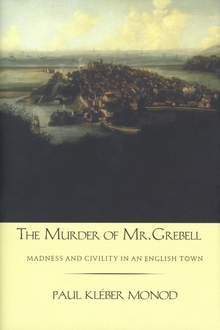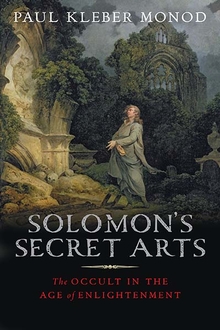The Power of Kings
WARNING
You are viewing an older version of the Yalebooks website. Please visit out new website with more updated information and a better user experience: https://www.yalebooks.com
Monarchy and Religion in Europe 1589-1715
Paul Kléber Monod
Discussing monarchies throughout Europe, from Britain to Russia, Monod tells how sixteenth-century kings and queens were thought to heal the sick with a touch, were mediators between divine authority and the Christian self in quasi-religious ceremonies, and were seen as ideal mirrors of human identity. By 1715, the sacred authority of the monarchy had been supplanted by an ideology fusing internal moral responsibility with external obedience to an abstract political authority. Subjects were expected to identify not with a sacred king but with the natural person of the ruler. No longer divine, the kings and queens of the Enlightenment took up a new, more human place in the hearts and minds of their subjects.
"Original, interesting, and well-written. Monod has produced a lively and coherent book."—Peter Burke, Emmanuel College, Cambridge
"This book describes the images of various monarchs in Europe (Russia, Sweden, Poland, the Holy Roman Empire, England, and France), showing how they presented themselves and how they were viewed by their subjects. . . . Well presented. This specialized book is recommended for academic and graduate libraries."—Library Journal
"Original, clearly written, and fascinating in the rich detail that supports its thesis. . . . General readers; upper-division undergraduates and above."—Choice
"In this comprehensive work, Monod explores the relationship between the decline of mysticism in Christianity and the shift of European political ideology from belief in the divine authority of monarchs to the view of rulers as mortal servants of the state. . . . A wealth of insightfulness."—Virginia Quarterly Review
"Monod’s book is an important one for all those interested in questions of the nature of political authority or in early modern cultural and religious history. Few historians can manage the intellectual and geographical range of this work, and the interpretations are inventive and stimulating. . . . [Monod] offers an engaging meditation on the historical development of this connection, and it will be of interest to general readers and to academic specialists in a number of disciplines."—Carl L. Bankston, Commonweal
"An unusually broad canvas. Besides the emperors and monarchs of England, France and Spain, he examines the Scandinavian sovereigns and the rulers of Russia and Poland, demonstrating the manner in which they did or did not conform to the contemporary trends. . . . Highly informative . . . especially in the treatment of underrated or misjudged monarchs, such as Louis XIV and Philip II." —Alastair Hamilton, Times Literary Supplement
"A learned, lucid book. All treatments of Monod’s subject will in the future have to begin with the progressions of ideas and policies that he has so carefully laid out; we will watch through his eyes as we see holy, anointed kings gradually become embodiments of collective will, and states slowly replace monarchies as the object of political veneration."—Theodore K. Rabb, Sixteenth Century Journal
"[An] insightful, far-ranging, and at times lyrical book. . . . [A] lucid and brilliant book. . . . An exceedingly wise book. . . . [It] will be cited, debated, and appreciated for many years to come. Its comparative approach, wide range of sources, and intelligent analysis make it the kind of book one dreams of writing."—Teofilo F. Ruiz, American Historical Review
"An impressive study of the evolution of monarchy in early modern Europe from an institution that represented godly ideals to one that had begun to absorb the rationalism of enlightened liberalism. . . . A challenging and stimulating exercise for readers interested in the history of ideas. . . . Monod’s ambitious undertaking will be welcomed by scholars who are interested in a thought-provoking and well-focused monograph."—Thomas M. Keefe, Catholic Historical Review
"The Power of Kings is a thoughtful and often thought-provoking book, and stands as a worthy contribution to the literature of early modern kingship."—Alisa Plant, Seventeenth-Century News
"[C]ompelling and stimulating."—Katherine B. Crawford, Journal of Modern History
"[A]n intriguing interpretation of the rise of the early modern state taken in light of the recent ‘linguistic turn.’ It discerns stages of development that began in France and other parts of Western Europe then moves steadily eastward. Well-written and lucidly argued, this book would work well in an advanced undergraduate or graduate seminar in comparative early modern European history."—Michael Wolfe, Religious Studies Review
"A fascinating study of monarchy and Christianity in Europe’s confessor-states."—Contemporary Review
Publication Date: August 11, 2001
35 b/w illus.



